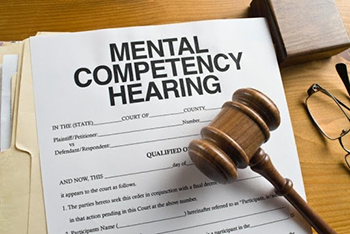
TOP 10 REASONS WHY YOUR LONG-TERM DISABILITY (LTD) COMPANY MAY REFUSE TO DO AN LTD BUYOUT
1. Not enough money in reserve

The National Association of Insurance Commissioners (NAIC) creates rules to be followed by insurance companies for “statutory reserving.” Such rules provide minimum reserves that a company must hold for claims that have been reported or incurred. The 1987 Commissioners Group Disability Table (CGDT) provides specific guidance for the valuation of group LTD claim reserves although the specifics of calculations should be left to experienced actuaries.
For our purposes, what we need to know is that your disability insurance company is required to have capital reserves for your claim that meet the minimum requirements of the rules. The insurance company must hold enough money in reserve for your claim to meet the minimum requirements. The minimum required reserves for your claim may not be the total present value of future benefits payable on your claim if we assume it will be paid through the maximum duration of the policy. While a Long-Term Disability Buyout (LTD Buyout) rarely ever totals the total possible future value of a claim, even a reasonable fraction of your future payable benefits may not be covered by the requirement minimum reserves for your claim.
In other words, the insurance company simply may not have enough money in reserves to extend a reasonable long-term disability buyout offer on your claim.
2. You have had active cancer treatment within the last 5 years
There are many reasons why having active cancer treatment would disqualify you from a lump sum buyout, all of which come down to uncertainty. If your primary disabling condition relates to cancer, then this will make it even less likely that an LTD buyout will be an option for you. The treatment options and treatment effectiveness of many cancers provide a reasonable likelihood of recovery. Recovery could mean you are no longer disabled and as long as this possibility is an option your insurance company will never pay out your future benefits in a lump sum.
The side effects that come along with chemotherapy, radiation immunotherapy, hormone therapy as well as other cancer treatments can be disabling alone. If your disability results from the side effects of your treatment the side effects could diminish or disappear once treatment has been completed.
Active cancer treatment also suggests that cancer is present and with that diagnosis comes a shorter life span prognosis. The span of your lifetime is a consideration in buyout calculations and the shorter your life is expected to be the less likely it is the insurance company will consider doing a buyout.
This leads us to the 3rd top reason for not offering a buyout.
3. Mortality concerns
In reviewing a claim for a possible disability insurance buyout, an insurance company’s actuaries will define mortality rates to determine your life expectancy. This assessment will take into account your medical history, especially conditions related to your heart, liver, and of course any history of cancer. If you have a history of smoking or excessive drinking this will also affect your life expectancy. Lastly, if you are suffering from a terminal condition it is highly unlikely that you will be a candidate for a buyout. This assessment is also relevant in calculating a buyout offer amount if the insurance company finds that you are an eligible candidate.
4. There are upcoming changes in your disability policy

Disability policies contain many provisions that enable the insurance company to limit benefits in one way, shape, or form. One of the most common limitations that is used to deny an LTD claim is the change in definition provision in the policy. The own occupation to any occupation change is the most common and typically occurs after 18, 24, 36, 60 and sometimes as long as 120 months of benefits. Most commonly, this change occurs after 24 months of benefits.
Disability laims based on mental health conditions are frequently limited by the policy to a maximum of 24 months of benefits. Many other policies contain such limitations that extend to disabling conditions that are considered “self-reported” or “Musculo-skeletal.”
If your LTD claim is less than 2-years old, it is unlikely your claim will be eligible for a lump sum buyout settlement. Typically, the only way this would be possible is if you and your insurance company agree that your claim is limited to a specific limitation in the policy and you agree to waive the extension of your claim beyond that limited period of time.
5. You Have Not Been Approved for SSDI Benefits
Most group LTD policies will contain a detailed section that provides a list of other income sources that can reduce your monthly disability benefits. The sections can be titled “Other Income Benefits” or “Deductible Source of Income” depending on your insurance carrier. This income can include retirement benefits from your employer, Social Security Benefits (SSDI) for you and your dependents, and many other sources that pay you any benefits for the same disability or retirement.
Moreover, a retroactive award from any relevant source can result in an overpayment by your disability carrier if your insurance company finds that the money awarded to you qualifies as a deductible source of income. You likely also signed a reimbursement agreement whereby you agreed to reimburse your insurance company for any resulting overpayment from a retroactive award of SSDI benefits.
If you have not been awarded SSDI benefits and there is a possibility that you could receive these benefits in the future, then your insurance company will not agree to a lump sum settlement.
6. Your Disability Is the Result of Injuries Caused by Somebody Else’s Negligence

If your disability is the result of injuries caused by someone else’s negligence such as a car accident and you are actively pursuing a claim against the negligent party, you may be disqualified from a buyout. The reason is the same for any other money expected to be paid to you for loss of income. This could include certain portions of a worker’s compensation, VA benefits, state disability and employer-paid disability benefits.
Some policies contain a provision called a “Subrogation Clause” that enable the insurance company to be repaid from your accident recovery if your disabling conditions resulted from that accident.
As long as there is an expectation of a future possible recovery for any deductible income, your disability carrier will not consider you eligible for a lump sum buyout.
7. You Are Receiving SSDI Benefits for A Dependent
If you are approved for SSDI benefits and you have dependent children, then you will also be eligible for SSDI dependent benefits. Most disability policies that consider SSDI benefits as an offset will also consider those dependent benefits to be offsetable income. However, while your primary SSDI benefits may be payable for at least as long as your LTD benefits is payable, your dependent benefits will cease once your child ceases to be a “dependent.” This usually occurs on your child’s 19th birthday. The future drop-off of this benefit, which could no longer be considered an offset by your disability carrier, would result in an increase of your LTD benefit by an equivalent amount. This future adjustment would change the value of your future payable benefits.
However, given the uncertainties of the adjustment, some carriers refuse to consider a lump sum buyout if you are currently receiving SSDI dependent benefits. Other carrier’s will discuss a lump sum buyout but will not consider the adjustment for the expected future change and thereby undervalue your future benefits.
8. Your claim has been overpaid and you are in a repayment plan
Approval rates for SSDI claims in 2018 were 41%. This high denial rate results in many claimants having to appeal the denial and wait for a hearing in front of an Administrative Law Judge. The wait for a hearing can be anywhere from six months to two years. During that time, if you signed a reimbursement agreement with your insurance company, your LTD benefit is paid at the full monthly amount without any reductions for estimated offsets.
If your SSDI claim is approved two years later at the hearing level, then you may be entitled to a large retroactive award that will result in a substantial overpayment to your Long-Term Disability carrier.
Many people on disability are living on such limited means that they are forced to use some or all of the SSDI award to pay creditors or to get needed medical treatment. Failing to pay the insurance company, however, will result in the insurance company withholding your benefits at best, and sending your debt to collection at worst.
If you owe an overpayment to your LTD insurance company, they may not be willing to do a lump sum buyout until after the overpayment has been completely recovered.
9. Your Claim Is Too Young
If a disability carrier extends a lump sum buyout offer, they have concluded that your claim is expected to be paid for the maximum duration of the policy. Of course, anything can happen and so the insurance company will consider mortality and morbidity ratings based on your medical history and the insurance company’s past claim history. Generally, the shorter the period of time remaining on the claim the lesser the uncertainty. The longer the period of time remaining the more the uncertainty involved. If your claim is very young, not only will it be less likely that your insurance company has enough in reserves to extend a reasonable buyout offer, but the general uncertainties inherent in a long future claim may make it hard for the insurance company to measure the uncertainties
10. There Is a Question of Your Competency to Handle a Big Payout

As an insurance company and claims administrator, your insurance company has a fiduciary duty to you. this means that your insurance company has an obligation to act in your best interests when offering you a settlement on an uncontested disability claim. It is easier to manage your finances if you have a fixed monthly stream of income vs receiving a large payout of all your expected future benefits and having to structure a financial plan for the long term. If there is a question as to your ability to manage your finances, your insurance company will not offer you a payout.
Such questions can arise if you have certain mental health conditions, such as gambling habits. If any of your medical records contain any notes from doctors questioning your financial competency there could be an issue. Some carriers will require your mental health provider to sign a Physician Competency Statement before agreeing to a lump sum buyout.
If you have received a lump sum buyout offer from Cigna, Hartford, Unum or any other disability carrier, or are interested in exploring your options, feel free to schedule a call with experienced long term disability buyout attorney at your convenience.